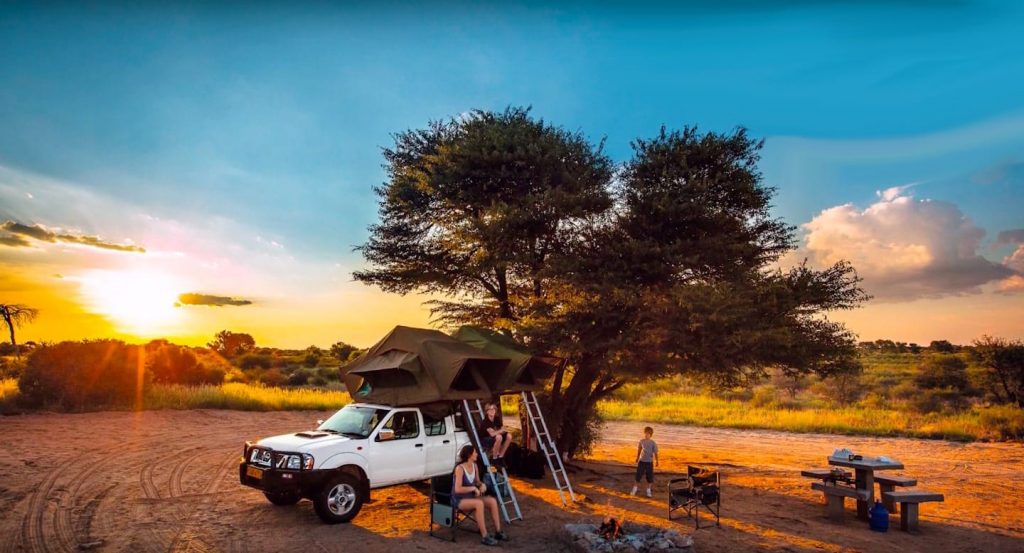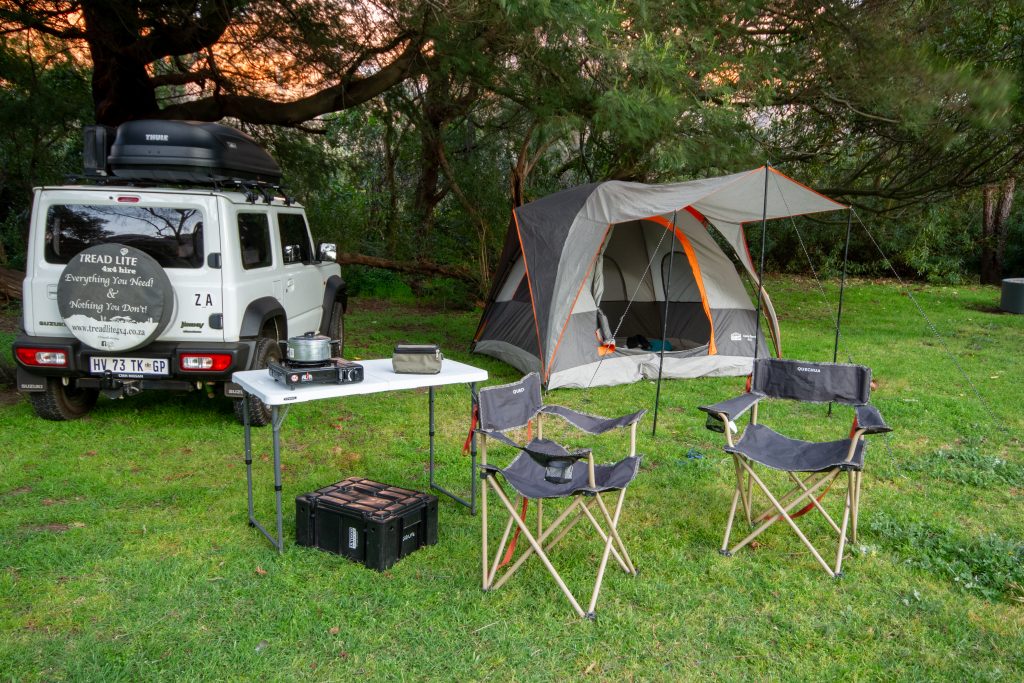
How to Self-Drive Kruger National Park in One Week
Kruger National Park is South Africa’s most iconic game reserve – a vast wilderness where...
 14 July 2025
14 July 2025 
Camping in the wild can be an exciting experience for those who love the great outdoors. Having the right gear and equipment can make all the difference when it comes to comfort and safety. In this article, we’ll discuss some of the essential aspects of camping with your rental 4×4 in Southern Africa.
Renting a fully equipped 4×4 is obviously much easier than camping without one, but if your budget is tight you might want to opt for an unequipped 4×4 and bring your own camping gear.

Above: Nissan Double Cab 4×4 Equipped
For both options, consider Drive South Africa to rent a 4×4 in Southern Africa.
If you’re renting a fully equipped 4×4 some of these items might already be included. Speak to your rental agent about the gear that’s included with your vehicle. Here’s our go-to checklist for camping in the wild:
The more you prepare, the better your camping will be. It won’t hurt to give your gear a dry-run in your backyard to familiarize yourself with the equipment and tasks. You’ll want to carefully consider which campsites you choose according to what you want to see and do. Is the campsite fenced? Does it have running water and camping facilities?
What’s the weather going to be doing on your trip? It’s always worth checking the venue’s website to familiarize yourself with the rules and regulations. Does the campsite have electricity? Do the showers (if they have them!) have hot water or will you have to prepare this yourself?

Above: 4×4 Jimny Camping
Once you’ve arrived at the location (it’s best to get there early so you don’t have to set up in the dark) it’s important to find the ideal spot to pitch your tent and set up camp. It’s worth keeping the following in mind:
Read reviews on potential camping spots and check out 4×4 forums if you’ve got any questions. Always try to leave your campsite in a better condition than you found it. Now all that’s left is to gaze peacefully into the fire, soak up the starlight, and enjoy your time off-grid in your 4×4 hire.